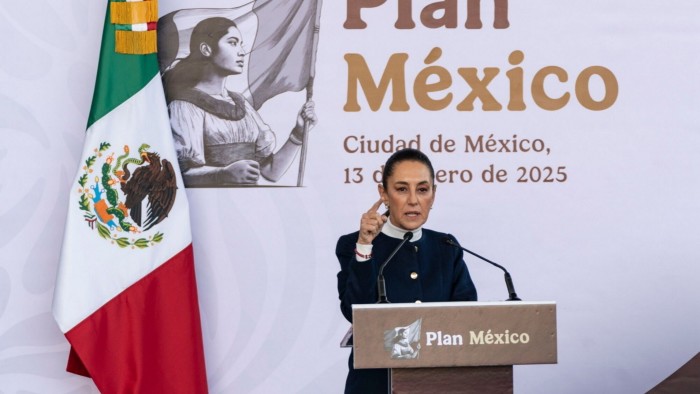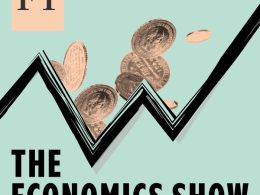Unlock the White House Watch newsletter for free
Your guide to what the 2024 US election means for Washington and the world
Mexico’s government on Monday launched a plan to shrink its yawning trade deficit with China and attract investment, in an olive branch to Donald Trump’s incoming US administration.
Left-wing President Claudia Sheinbaum outlined “Plan Mexico” to try to boost national production in sectors from textiles to cars and reduce its trade deficit with China, which grew to $105bn in 2023.
The plan comes as Mexico tries to push back against claims by some American politicians that it is allowing Chinese goods to pass through the country into the US, as Sheinbaum tries to ease trade tensions with the president-elect as he prepares to return to the White House next week.
Trump last year threatened Mexico and Canada with tariffs of 25 per cent on their exports, accusing them of permitting illegal migration and drug trafficking across their borders.
The two countries have also been moving to align their trade rules with the US to try to limit Chinese imports and investment, as they try to preserve the three-nation USMCA agreement.
“It’s been demonstrated to be one of the best trade deals in history, it benefited the three countries,” Sheinbaum told business leaders at an event in the National Anthropology Museum. “It’s the only way that we can compete with Asian countries, in particular with China.”
Members of Trump’s team have expressed concern about China’s growing role in Mexico’s economy. Just in the past few weeks, Sheinbaum’s government has imposed new tariffs on imports of clothing and other textiles as well as couriered packages from China.
Monday’s plan includes specific targets such as substituting 15 per cent of sewing thread imports with domestic supplies and promises a development programme for Mexican companies making polymers and wire harnesses for autos and aerospace sectors.
The USMCA, which was negotiated in Trump’s first term, underpins much of Mexico‘s $36bn annual foreign investment and is up for a scheduled review in 2026. China’s role in the region is among fundamental issues expected to be up for discussion.
Canada has also moved to tighten China’s role in its economy in recent years, including tariffs on the country’s electric vehicles, steel and aluminium that aligned with the steep levies imposed by the US.
Mexico had little public debate about China’s role in its economy until recently, with investment and trade growing faster since the Covid-19 pandemic. Its trade deficit with Beijing has also widened to 38 per cent of GDP, with large imports in the electronic equipment, vehicle and machinery sectors.
To counter this, Sheinbaum will need to attract investment by overcoming uncertainty created both by Trump and by her government’s domestic agenda to overhaul the country’s institutions.
On Monday, she committed to resolving two big question marks in February by publishing the rules for energy investment and for public-private investment in infrastructure.
Although she had raised the prospect last year of retaliatory tariffs in response to Trump’s threats, in recent days she has tried to stress that Mexico will have a “good” relationship with the US’s next president
“Facing any uncertainty in the near future, Mexico has a plan,” she said.
Source link









